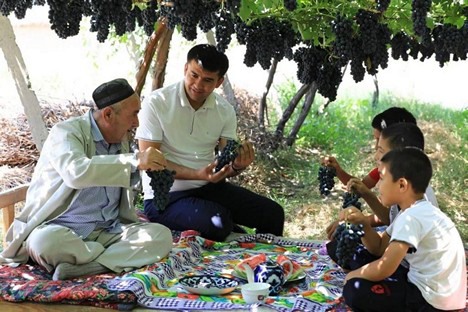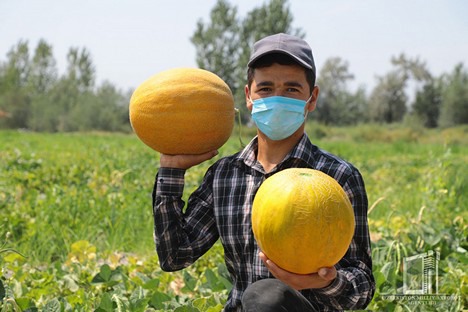The councilor to the Uzbek Embassy in Rome Nuriddin Kushnazarov will personally attend Macfrut 2021. Since Uzbek companies cannot take part due to the pandemic, he will represent his country in Italy.
"At the fair, I will be able to see the latest solutions and technologies for the fresh produce sector and verify that Macfrut is an excellent showcase for Uzbek businesses exporting fruit, nuts and vegetables," explains the diplomat, who is an expert in the agricultural field.
 Source: www.uza.uz
Source: www.uza.uz
Since 2016, the new agricultural policy in Uzbekistan has encouraged investments in the agricultural and processed food sectors. The agricultural and food sector in Uzbekistan is undergoing a very dynamic process that is seeing production diversification and intensification as well as the introduction of technologies to save water and improve extension services. This is in line with the new development strategy 2020-2030.
To support these reforms, the Uzbek government has attracted funds for over $1 billion in loans and $130 million as grants from various international financial institutions and development partners such as the World Bank, ADB, IFAD, UE, EBRD, FAO, USAID, GIZ and many others.

The vast land resources in Uzbekistan provide the potential for extensive and intensive agricultural growth. Businesses are looking for technologies and know-how to improve their productions.
The country mainly exports fruit, nuts and vegetables such as grapes, apricots, cherries, peaches, plums, sloes, onions, shallots, garlic, leeks and tomatoes. Uzbekistan is currently the second world producer of fresh apricots and the fourth producer of cherries.
The first five destinations for Uzbek exports have been: China, Russia, Kyrgyzstan, Turkey and Kazakhstan. In April 2021, Uzbekistan obtained the status of beneficiary of the Generalized Scheme of Preferences SPG+ which enables the export of basic products to the EU with zero or reduced tariffs and duties.
This opportunity has enabled estimates of Uzbek exports to increase fivefold within next year. In the end, this should lead to investments by foreign companies and multinationals, thanks to the advantages granted by the emerging market.
Last but not least, Uzbekistan has worked hard to establish an integrated agricultural knowledge and innovation system (AKIS) to provide research, education, training, information and consultancy service to operators and businesses.
"We are establishing partnerships with the main international research institutions, universities and centers to bring knowledge, best practices and know-how to the field."










